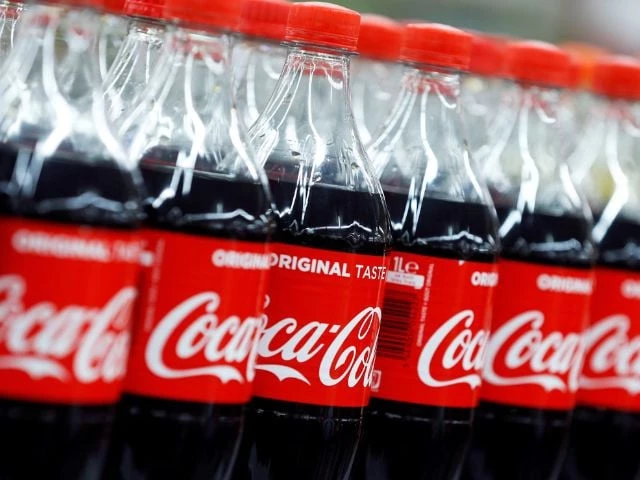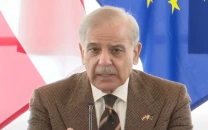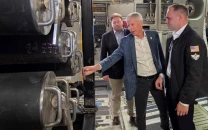Coca Cola to increase plastic use or raise prices amid Trump's aluminium tariffs
25% increase in tariffs on aluminium next month could drive up the cost of canned beverages.

Coca Cola is evaluating the possibility of using more plastic bottles for its drinks in the US, or raising product prices, in response to President Donald Trump’s proposed tariffs on aluminium imports.
The 25% increase in tariffs on aluminium is set to come into effect next month and could drive up the cost of canned beverages. As a result, Coca-Cola may need to shift its packaging strategy to maintain affordability.
During a recent earnings call, Coca Cola CEO James Quincey stated that if the price of aluminium increases because of the tariffs, the company may opt for more plastic bottles (PET) to counterbalance higher costs.
Coca-Cola has already been using more aluminium in its packaging in recent years, given its 100% recyclability, but Quincey explained that plastic bottles might be used more heavily if it helps to manage costs.
“We continue to have other packaging offerings that will allow us to compete in the affordability space,” Quincey said, adding that plastic bottles would be a feasible alternative if the price of aluminium rose significantly.
The Trump administration’s new tariff policy will increase the duties on aluminium imports from 10% to 25%, beginning next month. This could lead to increased costs for products sold in aluminium cans, such as Coca-Cola’s popular beverage range.
In response to this, Coca Cola is considering a number of strategies to maintain its price point, including switching to plastic packaging, finding domestic sources of aluminium, or raising the prices of products.
Coca Cola’s sustainability efforts at risk due to increased plastic use
Coca Cola’s push for using more aluminium over the years has been part of its sustainability strategy. The company has increasingly used aluminium in its packaging for products such as Dasani and Smartwater, as the metal is considered more environmentally friendly than plastic due to its higher recyclability.
However, if the price of aluminium rises significantly due to the tariffs, Coca Cola may have little choice but to revert to using plastic.
Environmental groups, such as Greenpeace, have frequently criticised Coca Cola for its extensive use of single-use plastics. In fact, the company has been named the world’s worst plastic polluter for six consecutive years.
The shift towards more plastic bottles, even if temporary, could amplify concerns from environmental advocates and lead to further scrutiny.
Despite these concerns, Quincey sought to downplay the impact of the tariffs on Coca Cola’s operations. He explained that packaging costs represent only a small part of the company’s overall expenses, and thus, the proposed tariff increases would not “radically change” the business model.
The broader impact of tariffs on Coca Cola
The tariffs are part of Trump’s broader trade policy, which aims to protect US industries by taxing imported goods.
The US imports a significant amount of aluminium, almost half of the total it uses, which makes the proposed tariff increase particularly impactful for companies relying on aluminium, like Coca Cola.
While some exceptions were made for can-makers in the past, the Trump administration has stated that there will be no exemptions for individual products or countries this time. This decision could result in a price increase for cans, a major packaging component for Coca-Cola.
Despite potential challenges, Quincey assured investors that the impact of the tariffs would not be overly disruptive to Coca-Cola’s multi-billion-dollar business. He reiterated that the company would continue to monitor the situation and adapt its strategies accordingly.
A reversal on environmental policy?
In addition to the aluminium tariffs, another decision by the Trump administration has raised concerns about plastic pollution. Earlier, Trump signed an executive order reversing an effort initiated by former President Joe Biden to reduce plastic waste, including a measure to replace plastic straws with paper alternatives.
This executive order could contribute to the growing environmental impact of single-use plastics, including those used by companies like Coca Cola.
While Coca Cola has long been focused on sustainability and reducing its plastic footprint, the potential use of more plastic bottles due to increased aluminium costs could signal a shift in the company’s environmental strategy. Environmentalists fear that such a move would further damage Coca-Cola’s reputation as a global polluter.
Despite the potential drawbacks, Quincey maintained that Coca Cola remains committed to sustainability, but also emphasised that the company must balance its environmental responsibilities with maintaining consumer affordability






















COMMENTS
Comments are moderated and generally will be posted if they are on-topic and not abusive.
For more information, please see our Comments FAQ